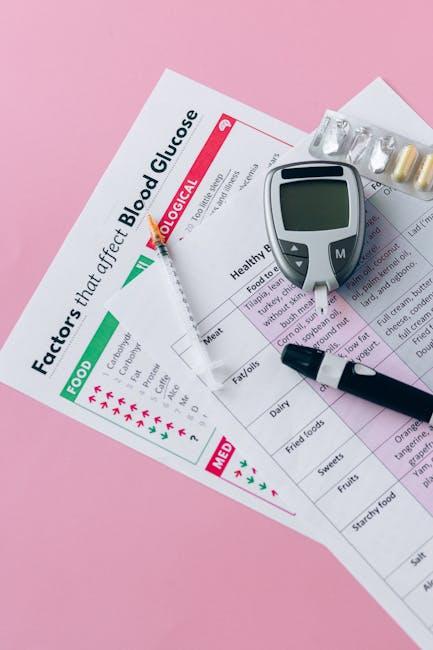In the intricate symphony of our bodies, cholesterol often plays the misunderstood villain, overshadowed by its more glamorous counterparts like vitamins and antioxidants. Yet, beneath its notorious reputation lies a complex character essential for our well-being. Just as every story has two sides, cholesterol too has its dual nature—capable of both supporting life and threatening it. As we embark on a journey to demystify this enigmatic molecule, we’ll explore the art of maintaining healthy cholesterol levels naturally. From dietary alchemy to lifestyle harmonies, discover how simple, everyday choices can transform cholesterol from foe to friend, ensuring that your body’s rhythm remains melodious and balanced.
Understanding Cholesterol and Its Role in Your Body
Cholesterol is often misunderstood as a villain in the world of health, but it plays a crucial role in maintaining various bodily functions. It is a waxy, fat-like substance found in every cell of your body, and it’s essential for the production of hormones, vitamin D, and substances that help you digest foods. The body naturally produces all the cholesterol it needs, but it is also found in certain foods. Understanding the balance between the two types of cholesterol—LDL (low-density lipoprotein), often referred to as “bad” cholesterol, and HDL (high-density lipoprotein), known as “good” cholesterol—is key to maintaining optimal health.
- Incorporate Healthy Fats: Swap saturated fats found in red meat and dairy with healthier options like avocados, nuts, and olive oil.
- Stay Active: Regular physical activity can help raise HDL cholesterol and lower LDL cholesterol. Aim for at least 30 minutes of exercise most days of the week.
- Eat Soluble Fiber: Foods rich in soluble fiber, such as oats, fruits, and beans, can help reduce the absorption of cholesterol into your bloodstream.
- Manage Stress: High stress levels can negatively impact cholesterol levels, so practicing stress-reduction techniques like meditation and yoga can be beneficial.
By making these lifestyle adjustments, you can naturally maintain healthy cholesterol levels, supporting your body’s overall function and reducing the risk of heart disease. Remember, the goal is to create a balance that supports your health in the long term.
The Power of a Balanced Diet for Cholesterol Control
Embracing a balanced diet is a cornerstone of managing cholesterol levels naturally. By integrating a variety of nutrient-rich foods into your daily routine, you can effectively support your heart health. Fruits and vegetables are essential as they are high in fiber and antioxidants, which help reduce bad cholesterol. Whole grains, such as oats and brown rice, are another key component, providing soluble fiber that can lower LDL cholesterol levels. Moreover, incorporating healthy fats found in foods like avocados, nuts, and olive oil can replace saturated fats, contributing to healthier cholesterol levels.
- Opt for lean proteins like fish, beans, and legumes to support overall heart health.
- Limit the intake of processed foods and sugary snacks to prevent spikes in cholesterol.
- Stay hydrated with plenty of water, which aids in maintaining optimal bodily functions.
- Consider herbal teas, such as green tea, which may assist in lowering cholesterol naturally.
By making these dietary choices a regular part of your lifestyle, you not only enhance your cardiovascular health but also pave the way for a vibrant and energetic life. Remember, moderation and consistency are key, turning every meal into an opportunity for wellness.

Incorporating Physical Activity into Your Routine
To keep cholesterol levels in check, integrating physical activity into your daily schedule is crucial. A blend of aerobic exercises and strength training can work wonders in maintaining a healthy balance. Consider these engaging options:
- Brisk Walking: An easy and effective way to get your heart rate up. Try incorporating a 30-minute walk into your day, whether it’s during lunch or after dinner.
- Cycling: A low-impact exercise that can be both enjoyable and beneficial. Whether outdoors or on a stationary bike, aim for at least 150 minutes per week.
- Yoga: Offers not only flexibility and strength but also stress reduction, which can indirectly impact cholesterol levels.
- Strength Training: Incorporate weights or resistance bands into your routine twice a week to build muscle and boost metabolism.
Even small adjustments can make a significant difference. Opt for stairs over elevators, park further away to add steps, or even dance to your favorite tunes. The key is consistency, and by making these activities a part of your routine, you’re not only enhancing your physical health but also supporting your heart’s well-being.

The Impact of Stress Management on Cholesterol Levels
Stress, often dubbed the silent killer, can have a profound influence on your body’s cholesterol levels. When you’re stressed, your body produces cortisol, a hormone that can increase your blood cholesterol. Managing stress effectively can be a game-changer for your cardiovascular health. Here are some natural ways to manage stress that may help in maintaining optimal cholesterol levels:
- Mindfulness and Meditation: Regular practice of mindfulness or meditation can reduce stress and lower cortisol levels. This can lead to a healthier heart and more balanced cholesterol levels.
- Physical Activity: Engaging in regular exercise not only helps in reducing stress but also boosts HDL (good cholesterol) while lowering LDL (bad cholesterol).
- Healthy Eating Habits: Consuming a balanced diet rich in omega-3 fatty acids, fiber, and antioxidants can help mitigate stress effects and maintain healthy cholesterol levels.
- Quality Sleep: Ensuring adequate sleep is essential for stress management and overall well-being, contributing to better cholesterol regulation.
Incorporating these stress management techniques into your daily routine not only supports your mental health but also plays a crucial role in keeping your cholesterol levels in check, paving the way for a healthier lifestyle.








